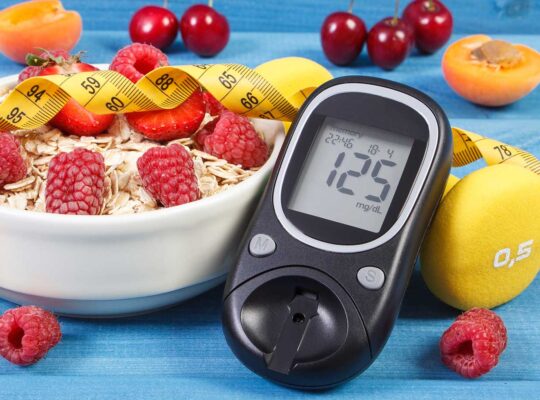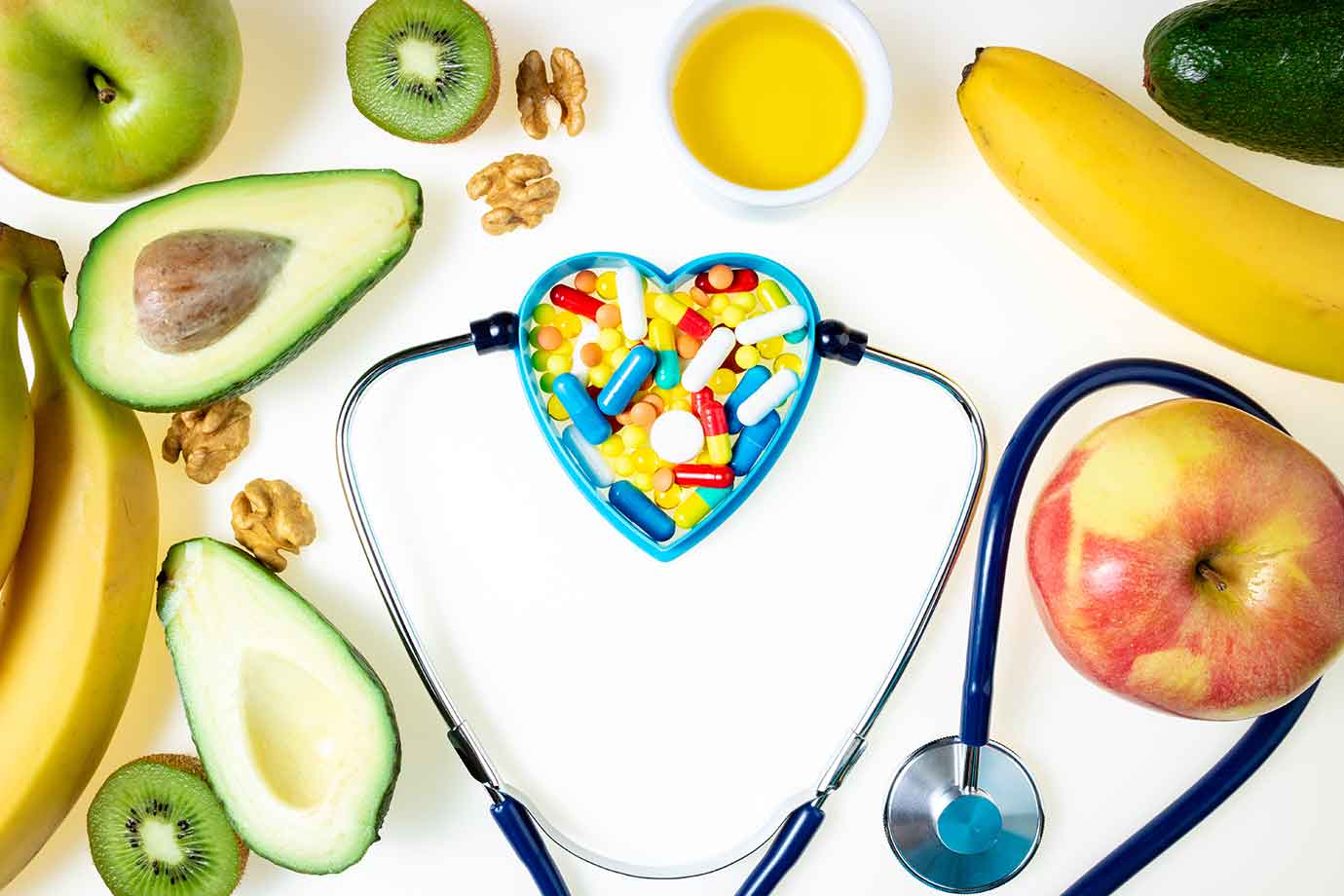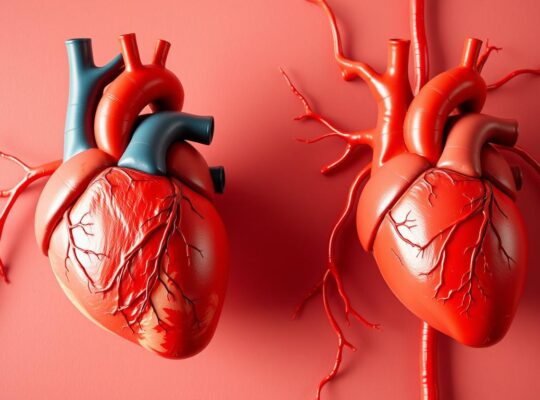Understanding Cholesterol and Its Impact on Health
Cholesterol often gets a bad reputation, but it’s actually important for building cells and making hormones. However, when “bad” cholesterol, or LDL, gets too high, it can cause serious health problems like heart disease and stroke. On the other hand, “good” cholesterol, or HDL, helps remove the bad cholesterol from your blood. Keeping these levels balanced is key to a healthy heart.
Making changes to your lifestyle can help you manage your cholesterol levels. By adopting healthier habits, you can lower your cholesterol naturally and reduce the risk of heart problems. This guide will show you practical steps to take control of your cholesterol.
Diet Modifications to Lower Cholesterol
Reduce Saturated and Trans Fats
Saturated and trans fats can really raise your cholesterol levels. Foods like red meat, butter, and processed snacks are high in these fats and should be reduced or cut out of your diet. Instead, choose healthier options like lean meats, low-fat dairy, and plant-based oils.
Simple swaps, like using olive oil instead of butter or avocado instead of mayonnaise, can make a big difference. By eating fewer unhealthy fats, you’re helping your heart stay healthy.
Increase Fiber Intake
Fiber, especially soluble fiber, can lower cholesterol. It binds to cholesterol particles and helps remove them from your body. Foods rich in soluble fiber include oats, beans, lentils, and fruits like apples and berries.
Adding these foods to your daily meals is easy—try oatmeal for breakfast or beans in your salad. Fiber also helps with digestion and managing weight.
Choose Heart-Healthy Fats
Healthy fats, like monounsaturated and polyunsaturated fats, can help improve your cholesterol. These fats are found in foods like nuts, seeds, olive oil, and fatty fish.
Adding a handful of almonds to your snack or eating salmon for dinner can give your body these beneficial fats. Omega-3 fatty acids, found in fish like salmon and mackerel, are especially good for managing cholesterol.
Limit Dietary Cholesterol
While dietary cholesterol doesn’t affect blood cholesterol as much as once thought, it’s still good to limit it. Foods high in cholesterol include organ meats, shellfish, and egg yolks. Try to keep your daily intake below 300 mg.
Balancing your diet with plant-based foods and lean proteins can help keep your cholesterol in check. For example, use egg whites instead of whole eggs in recipes or choose leaner cuts of meat.
Foods to Include and Avoid for Cholesterol Management
| Category | Foods to Include | Foods to Avoid |
|---|---|---|
| Healthy Fats | Olive oil, avocado, nuts, seeds | Butter, margarine, processed oils |
| Lean Proteins | Chicken breast, turkey, fish | Red meat, processed meats |
| Whole Grains | Oats, quinoa, whole grain bread | White bread, pastries |
| Fruits and Vegetables | Apples, berries, leafy greens | Canned fruits in syrup, fried vegetables |
| Legumes | Lentils, chickpeas, black beans | Refried beans in unhealthy fats |
| Dairy | Low-fat yogurt, skim milk | Full-fat cheese, cream |
This table provides a clear comparison of healthy food options and those to avoid, empowering you to make informed dietary choices that support effective cholesterol management.
Physical Activity and Cholesterol Management
Benefits of Regular Exercise
Exercise is a powerful way to lower cholesterol. Regular physical activity can increase your good cholesterol (HDL) and help manage your bad cholesterol (LDL). It also lowers the risk of heart disease and improves overall heart health.
Types of Exercises to Consider
Adding aerobic activities like walking, jogging, or cycling to your routine can help lower cholesterol. Strength training is also helpful as it builds muscle and boosts your metabolism, contributing to a healthier weight.
Recommended Duration and Frequency
Aim for at least 150 minutes of moderate aerobic exercise or 75 minutes of vigorous exercise each week. Including strength training twice a week can also support cholesterol management and overall health.
Weight Management and Cholesterol Levels
Impact of Excess Weight on Cholesterol
Carrying extra weight can raise your LDL and lower your HDL cholesterol. Losing even a small amount of weight can improve your cholesterol and reduce your risk of heart problems.
Healthy Weight Loss Strategies
Focus on sustainable weight loss by eating a balanced diet and staying active. Avoid crash diets; instead, aim to lose 1-2 pounds per week for lasting results.
Maintaining a Healthy BMI
Keeping a healthy Body Mass Index (BMI) is important for managing cholesterol. Regularly check your weight and make lifestyle changes as needed to stay within a healthy range and support heart health.
Smoking Cessation and Cholesterol
Effects of Smoking on Cholesterol Levels
Smoking can lower your good cholesterol (HDL) and damage your blood vessels. Quitting smoking can raise your HDL cholesterol and lower your risk of heart disease.
Benefits of Quitting
The benefits of quitting smoking can be seen within weeks. You’ll have better circulation, improved lung function, and healthier cholesterol levels.
Resources for Smoking Cessation
There are many resources to help you quit smoking, like support groups, nicotine replacement therapies, and counseling. Getting professional help can increase your chances of quitting successfully.
Alcohol Consumption and Cholesterol
Moderate Drinking and Its Effects
Moderate drinking can have a positive effect on your HDL cholesterol, but drinking too much can lead to health problems like high blood pressure and increased triglycerides.
Recommended Limits
If you drink alcohol, do so in moderation. For women, this means up to one drink per day; for men, up to two drinks per day.
Risks of Excessive Alcohol Consumption
Drinking too much alcohol can cancel out any benefits and lead to serious health issues. It’s important to keep your alcohol intake in check.
Stress Management and Cholesterol Levels
Connection Between Stress and Cholesterol
Chronic stress can raise your cholesterol and increase your risk of heart disease. Managing stress is an important part of controlling cholesterol.
Stress-Reduction Techniques
Incorporating stress-reduction practices into your daily routine can help lower stress and improve your cholesterol. Techniques like meditation, yoga, and deep breathing can promote relaxation and well-being.
Meditation, Yoga, and Deep Breathing Exercises
Meditation helps you stay mindful and peaceful, while yoga combines physical and mental exercises for overall well-being. Deep breathing exercises are simple but effective in calming both your mind and body.
Supplements and Natural Remedies
Plant Sterols and Stanols
Plant sterols and stanols are natural compounds that can help lower cholesterol. You can find them in fortified foods and dietary supplements.
Fish Oil Supplements
Fish oil supplements, rich in omega-3 fatty acids, support heart health and can help lower cholesterol. Talk to your doctor to make sure you’re taking the right dose.
Other Potential Natural Remedies
Other natural remedies like garlic, flaxseeds, and green tea may help manage cholesterol. Adding these to your diet can provide extra health benefits.
Regular Health Check-ups
Importance of Monitoring Cholesterol Levels
Regular check-ups are important for keeping track of your cholesterol and overall health. Catching high cholesterol early means you can start managing it right away.
Recommended Frequency of Check-ups
Ask your doctor how often you should check your cholesterol. Most adults should have their levels tested every 4 to 6 years.
Working with Healthcare Providers
Your doctor can help you create a personalized plan to manage your cholesterol. They can offer advice, support, and treatments if needed.
Conclusion
Managing your cholesterol through lifestyle changes is a powerful and achievable goal. By making changes to your diet, exercising regularly, managing stress, and following other strategies, you can lower your cholesterol and improve your overall health. These changes will help keep your heart healthy and empower you to live a healthier life.
If you’re ready to take control of your cholesterol, talk to a healthcare professional who can give you personalized advice and support. Start making these changes slowly, and you’ll see your health improve over time.
Frequently Asked Questions (FAQs)
What are the primary factors that influence cholesterol levels?
Cholesterol levels are influenced by genetics, diet, physical activity, body weight, smoking, and stress. Understanding these factors can help you manage your cholesterol effectively.
How can diet impact cholesterol levels?
Eating a diet high in saturated and trans fats can raise LDL (bad) cholesterol. Eating fruits, vegetables, whole grains, and healthy fats can lower LDL and raise HDL (good) cholesterol.
Is it possible to lower cholesterol without medication?
Yes, making lifestyle changes like improving your diet, exercising more, managing your weight, and quitting smoking can significantly lower your cholesterol without needing medication.
How often should I have my cholesterol levels checked?
Most adults should have their cholesterol checked every 4 to 6 years. If you have risk factors, you may need to be tested more often, so talk to your doctor for personalized advice.
Can stress affect my cholesterol levels?
Yes, stress can raise your cholesterol. Using stress-reduction techniques like exercise, meditation, or mindfulness can help keep it under control.

















